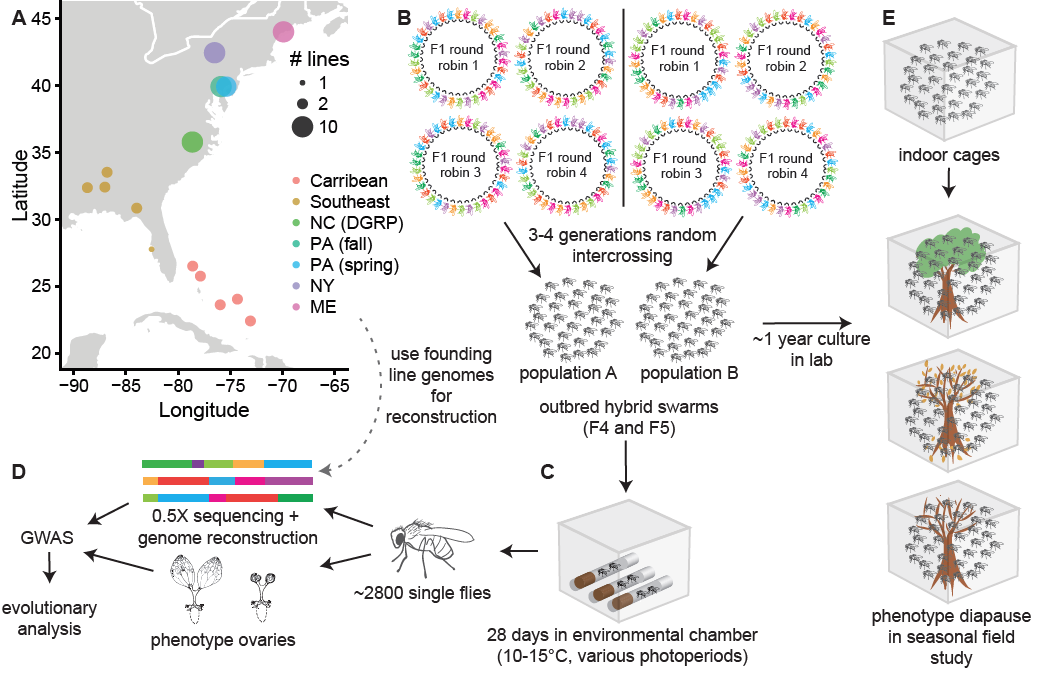Published: Dec 16, 2020
Postdoc Priscilla Erickson used D. melanogaster hybrid swarms and a computational pipeline developed by former PhD student Cory Weller to understand how flies survive harsh winters in temperate latitudes.
In North America, some flies can enter a hibernation-like state known as diapause, but the ability to do so is genetically variable. By sequencing nearly 3000 flies, they mapped which parts of the genome affect a fly’s ability to diapause. This trait is highly polygenic, controlled by hundreds of SNPs throughout the genome. Alleles that promote diapause are more common at higher latitudes where winters are harsher. In a field study in our experimental orchard at Morven Farm, flies kept in large field cages evolved increased ability to diapause in the late fall as conditions became cold. However, despite the seasonal evolution of diapause, the frequencies of SNPs contributing to diapause do not vary predictably across seasons in North American samples. Collectively, these results suggest that diapause-associated variants evolve differently across space and time.
Other members of the lab who contributed to the work include former undergraduate student Danny Song and PhD student Alyssa Bangerter. You can read more about the work at: https://journals.plos.org/plosgenetics/article?id=10.1371/journal.pgen.1009110
